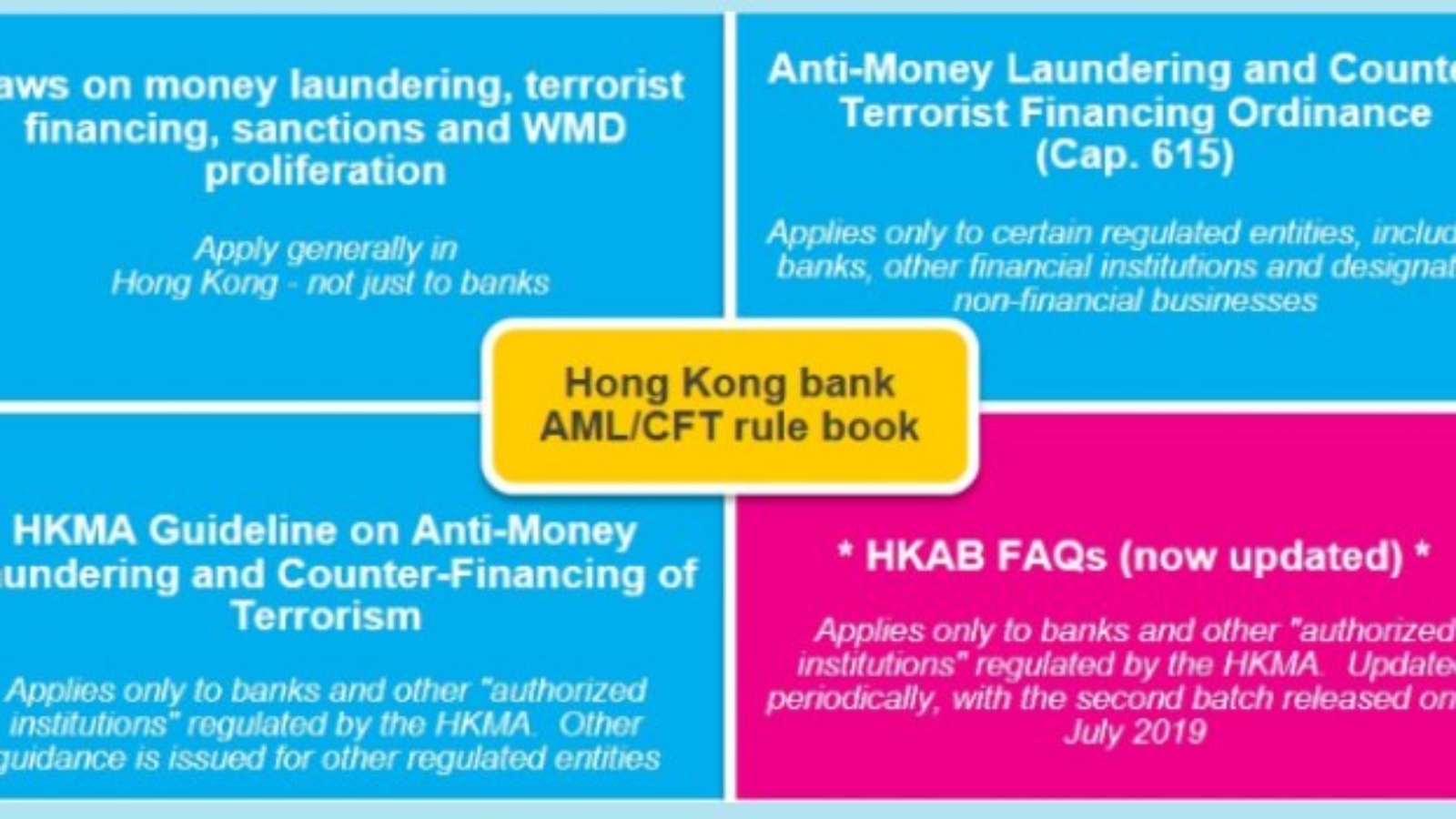Hong Kong is known for its robust legal and regulatory framework, which includes anti-money laundering (AML) laws. These laws aim to prevent the use of Hong Kong’s financial system for illicit activities such as money laundering and terrorism financing. In this blog post, we will discuss Hong Kong AML laws and their implications for businesses operating in Hong Kong.
- Overview of Hong Kong AML Laws : The Hong Kong government enacted the Anti-Money Laundering and Counter-Terrorist Financing (Financial Institutions) Ordinance (AMLO) in 2012 to strengthen Hong Kong’s AML regime. The AMLO requires financial institutions, including banks, securities firms, insurance companies, and money service operators, to establish and maintain robust AML policies, procedures, and systems.
Under the AMLO, financial institutions must conduct customer due diligence (CDD) to identify and verify the identity of their customers, monitor customer transactions, and report suspicious transactions to the relevant authorities. Financial institutions must also conduct ongoing risk assessments and implement effective AML training programs for their employees.
- Implications for Businesses in Hong Kong : While the AMLO applies primarily to financial institutions, other businesses operating in Hong Kong are also subject to AML laws. The Hong Kong Companies Ordinance requires companies to maintain proper records and identify their beneficial owners. The Hong Kong Securities and Futures Ordinance also requires licensed corporations to establish and maintain AML policies and procedures.
Businesses operating in Hong Kong must comply with AML laws to avoid penalties and reputational damage. Non-compliance with AML laws can result in fines, imprisonment, and revocation of business licenses.
- Best Practices for AML Compliance : To comply with AML laws in Hong Kong, businesses should adopt the following best practices:
- Establish and maintain robust AML policies and procedures
- Conduct ongoing risk assessments to identify potential AML risks
- Implement effective CDD and know-your-customer (KYC) procedures
- Monitor customer transactions and report suspicious activities to the relevant authorities
- Conduct AML training for employees and provide regular updates on AML laws and regulations
Conclusion
Hong Kong’s AML laws are designed to prevent the use of its financial system for illicit activities. Financial institutions and other businesses operating in Hong Kong must comply with AML laws to avoid penalties and reputational damage. Businesses can ensure AML compliance by establishing and maintaining robust policies and procedures, conducting ongoing risk assessments, implementing effective CDD and KYC procedures, monitoring transactions, and providing AML training to employees. By adopting best practices for AML compliance, businesses can maintain their reputation and comply with the law.




